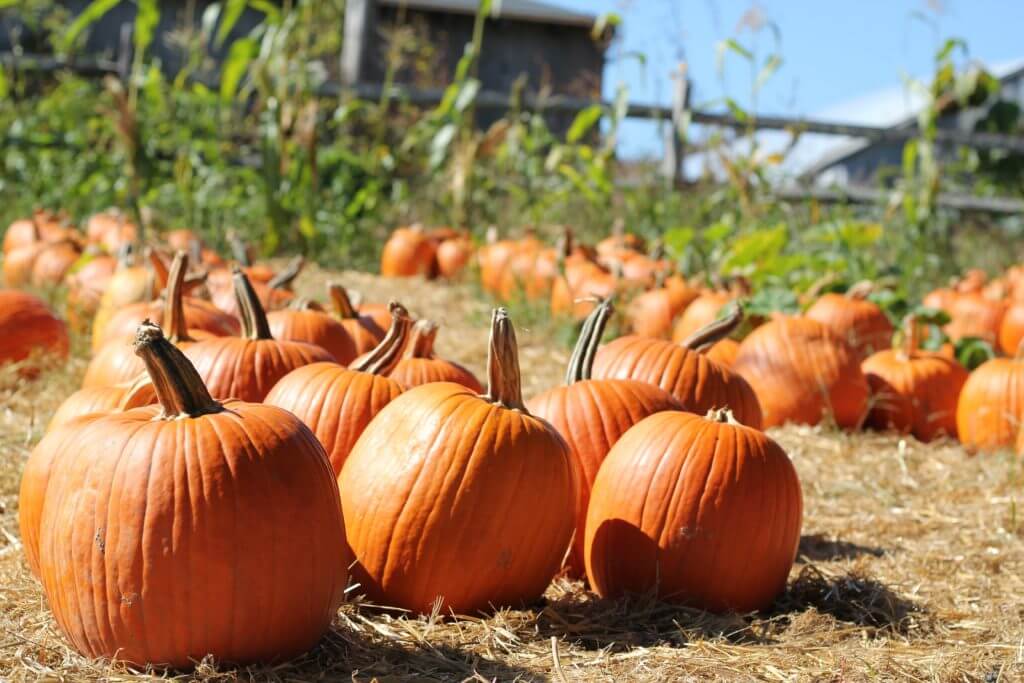Halloween always brings plenty of fun, laughter and of course scares, but the true fear-factor this year is the amount of food waste which has been generated. Many families missed out on festivities in 2020 thanks to Covid-19 but they’ve made up for it this year. With so many pumpkins now destined for the bin, we want to highlight just how important food waste recycling is, where food waste recycling goes and how it can be used to generate energy and encourage plant growth.
Don’t be a ghoul. Recycle your pumpkin
Pumpkins are a staple at Halloween but more often than not, families buy them for decorative purposes rather than to eat. Scary pumpkins may look impressive, but what about the food waste? It’s been predicted that 35 million pumpkins were bought and carved this year and without intervention, 14.5 million will end up in the bin. That is an incredible waste, particularly when you consider that 5 billion litres of water and 98 million tons of carbon emissions are generated in the growing, storage and transportation of those pumpkins (source: Independent).
Is it really a big deal if your pumpkin ends up in the bin? How does food waste affect the planet? Some assume that food waste isn’t as harmful as other materials such as plastic because it degrades. This couldn’t be further from the truth. Food waste damages the environment because of the harmful gases it emits when it ends up in landfill. Approximately one quarter of man-made greenhouse gas emissions are created by food waste. In fact, if food waste was a country, it would be ranked third after the USA and China in terms of greenhouse gas production (source: Greener Kirkcaldy).
When food ends up in landfill, it decomposes and releases methane. If released into the atmosphere before it is burnt, methane can trap heat which contributes to global warming. So, don’t be a ghoul. Keep your pumpkin away from landfill by using the filling to make pumpkin soup, add it to your compost heap or cut it up into pieces for the garden wildlife.
To limit the damage methane causes, it’s important that we continue to develop processes that capture methane and use it to our advantage (source: SoCalGas). We do just that at DCW.
Where does food waste recycling go?
DCW offers a reliable food waste recycling service to businesses across the South West. Adopting and encouraging more sustainable practices, we have partnered with Langage Farm to help generate energy and encourage plant growth.
Nestled in the Devon countryside just outside of Plymouth, Langage Farm was the first UK carbon neutral dairy with an Anaerobic Digestion facility (AD). We take the food waste we collect to the AD, where it is processed to create energy and electricity which goes back into the running of the farm and to the National Grid. The food waste also produces fertiliser which is used to grow the crops for the cows to graze on. The cow’s milk is then used in the factory to make ice cream and other dairy products.
By recycling your food waste with DCW, you are contributing to the running of a completely closed loop system. We truly believe that this is one of the answers to combatting climate change. If we can keep harmful gases away from the atmosphere and utilise them to create our own energy, it will create a much greener environment for all.
Recycle your food waste with DCW
By recycling your business’ food waste with DCW, you will be contributing to a closed loop system and therefore can improve your green environmental credentials.
It couldn’t be easier to switch to DCW for your commercial food waste recycling needs. We make the transition from your old supplier to us as smooth as possible and can even beat your current supplier by 10%.
We understand that every business has different needs, so we offer a bespoke service to suit you. Our team will give you an in-depth consultation to identify the right food waste solution for you, suiting any budget. We can also provide lockable bins or food waste bags so that you don’t have to worry about storing your waste.
Find out more today by contacting the team on 01392 690193 or email sales@dcw.co.uk.
